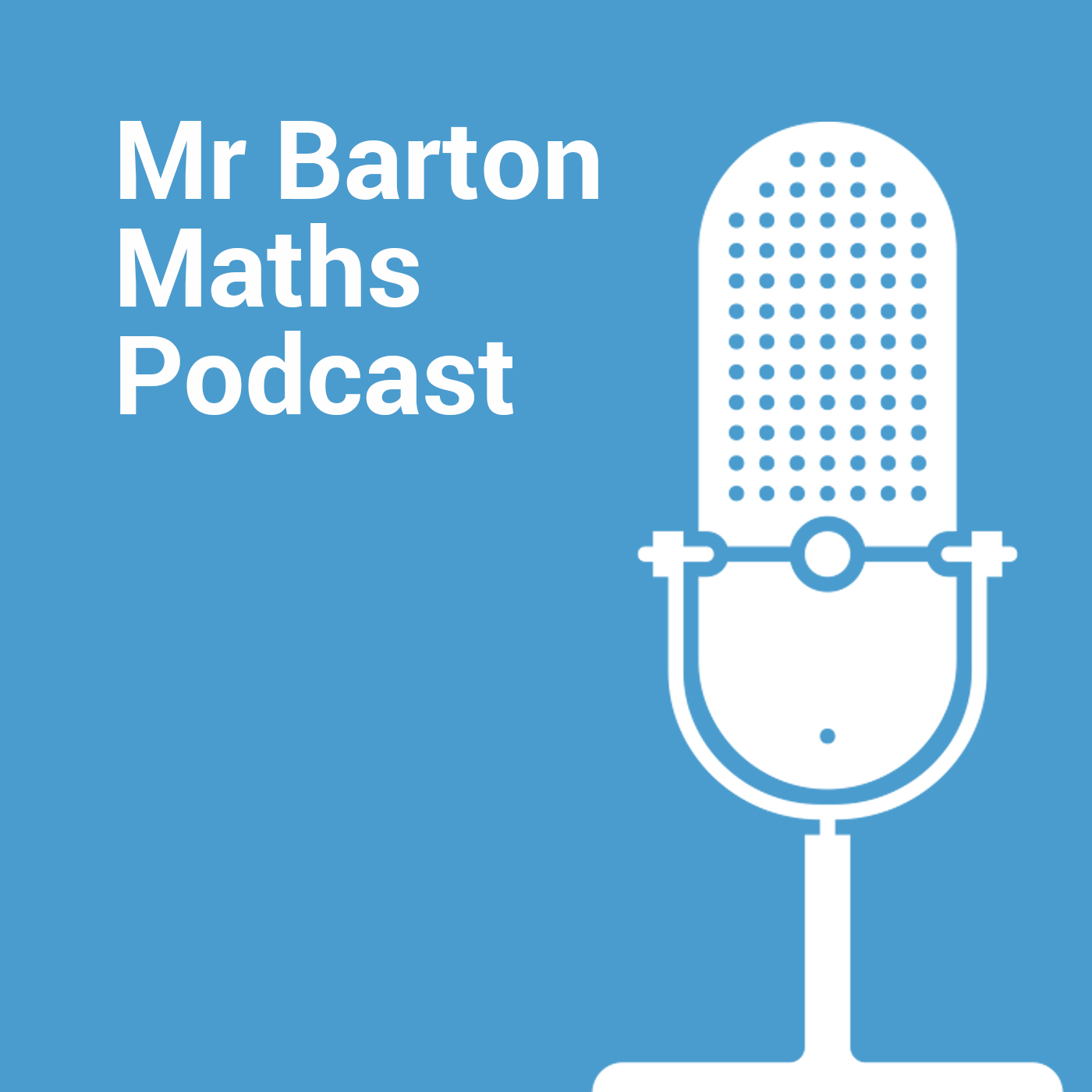
Craig Barton interviews guests from the wonderful world of education about their approaches to teaching, educational research and more. All show notes, resources and videos here: https://www.mrbartonmaths.com/blog/
Robert and Elizabeth Bjork are my heroes. The Godfather and Godmother of memory (my name for them, not theirs!), and they have transformed my teaching. It was an honour to talk to them. We spoke about how memory works, why forgetting is so important, why tests are far more than tools of assessment, when and why to make learning difficult, optimal spacing schedules, how to interleave successfully, and a whole lot more.
For more information about today’s guest, plus links to the websites, resources and ideas they mention, please visit the show notes page: http://www.mrbartonmaths.com/blog/robert-and-elizabeth-bjork-memory-forgetting-testing-desirable-difficulties/

On this episode of the Mr Barton Maths Podcast, I spoke to Professors Robert and Elizabeth Bjork.
Robert Bjork is Distinguished Research Professor in the Department of Psychology at the University of California, Los Angeles. Robert’s research focuses on human learning and memory and on the implications of the science of learning for instruction and training. Elizabeth Bjork is Professor of Psychology and Senior Vice Chair in the Psychology Department also at the University of California. Elizabeth’s main area of research has been the study of human memory, in particular, the role that inhibitory processes – such as those underlying goal-directed forgetting and memory updating – play in creating an adaptive human memory system. As well as countless prestigious honours they have received across their distinguished careers, they now have a new one: the first married couple on the Mr Barton Maths Podcast.
I thought my life had peaked when I interviewed Dylan Wiliam, but it has risen to a whole new level when I got to interview not one, but two of my heroes. Along with Dylan and Dan Willingham, Robert and Elizabeth Bjork have had a profound effect on my career, making me realise – among other things – that forgetting is beneficial, learning and performance are different, and learning should be desirably difficult. A huge thank you to Will Emeny for playing match-maker and helping this interview take place. I owe you, Will, big time.
In a wide ranging conversation we covered the following things and more:
- What misconceptions do you find people have about how memory works?
- What is the relationship between learning and performance? Can it really be inverse?
- Should learning be desirably difficult in the initial skill acquisition phase, and how does this fit in with Cognitive Load Theory?
- The most requested question on Twitter: Is there an optimal spacing schedule? And stay tuned for my Takeaway at the end of the podcast for more on this.
- What is worse – too short a spacing interval so students have not had time to forget, or too long so students have completely forgotten?
- Do the benefits of interleaving suggest deliberate practice (breaking down of skills, immediate feedback) is not an effective form of instruction?
- After decades of work in the field of memory, what is the piece of research that has surprised them the most – and it has significant implications for how we develop our students to become problem solvers.
- And to top it off, Robert has a selection of book and website recommendations, all of which are linked to in the show notes.
In the Takeaway section after the interview, I delve deeper into a few points I have been thinking lots about since the conversation. I look again as Assessment for Learning, including the use of Exit Tickets, and I feel I am finally at a place where I am happy with its role in lessons. I look at a way to calculate an optimal spacing schedule. I discuss the aforementioned implication of how memory works for the development of problem-solving. And finally, I touch upon the role of motivation in learning with respect to desirable difficulties and the concept of a pre-test. It’s a big fat tasty Takeaway this time! So, if that is of interest, please stick around at the end.
I have written up my Takeaways to many of the concepts and research papers we discuss in the interview, along with hundreds of others, on my research page. You can find it at mrbartonmaths.com/teachers/research/ I really hope you find it both interesting and useful.
Finally, If you enjoy this podcast, please share it with your colleagues. This one in particular might be of interest to your less mathematically inclined workmates. You can assure them that (for once) all references to numbers and algebra are kept to an absolute minimum. And my usual plea – if you have time to give us a review on iTunes, then the egomaniac in me would be delighted.
The Bjork Learning and Forgetting Lab, which contains lots of incredible research papers, can be found at bjorklab.psych.ucla.edu
To excellent blog post on spacing that I discuss in the takeaway is by Damian Benney and can be found here
The Bjork’s Big 3
1. Book: Make it Stick: The Science of Successful Learning
2. Book: How We Learn: Throw out the rule book and unlock your brain’s potential
3. Website: Lasting Learning
My usual plugs:
- You can help support the podcast (and get an interactive transcript of all new episodes) via my Patreon page at patreon.com/mrbartonmaths
- If you are interested in sponsoring an episode of the show, then please visit this page
- You can sign up for my free Tips for Teachers newsletter and my free Eedi newsletter
- My online courses are here: craigbarton.podia.com
- My books are “Tips for Teachers“, “Reflect, Expect, Check, Explain” and “How I wish I’d taught maths”
Thanks so much for listening, and I really hope you enjoy the show!
Craig Barton

Absolutely brilliant, completely reinforces my departments ideas for the new year of re-sits.
We are intending to introduce memorable teaching with interleaving across the maths curriculum for our 1200 students.